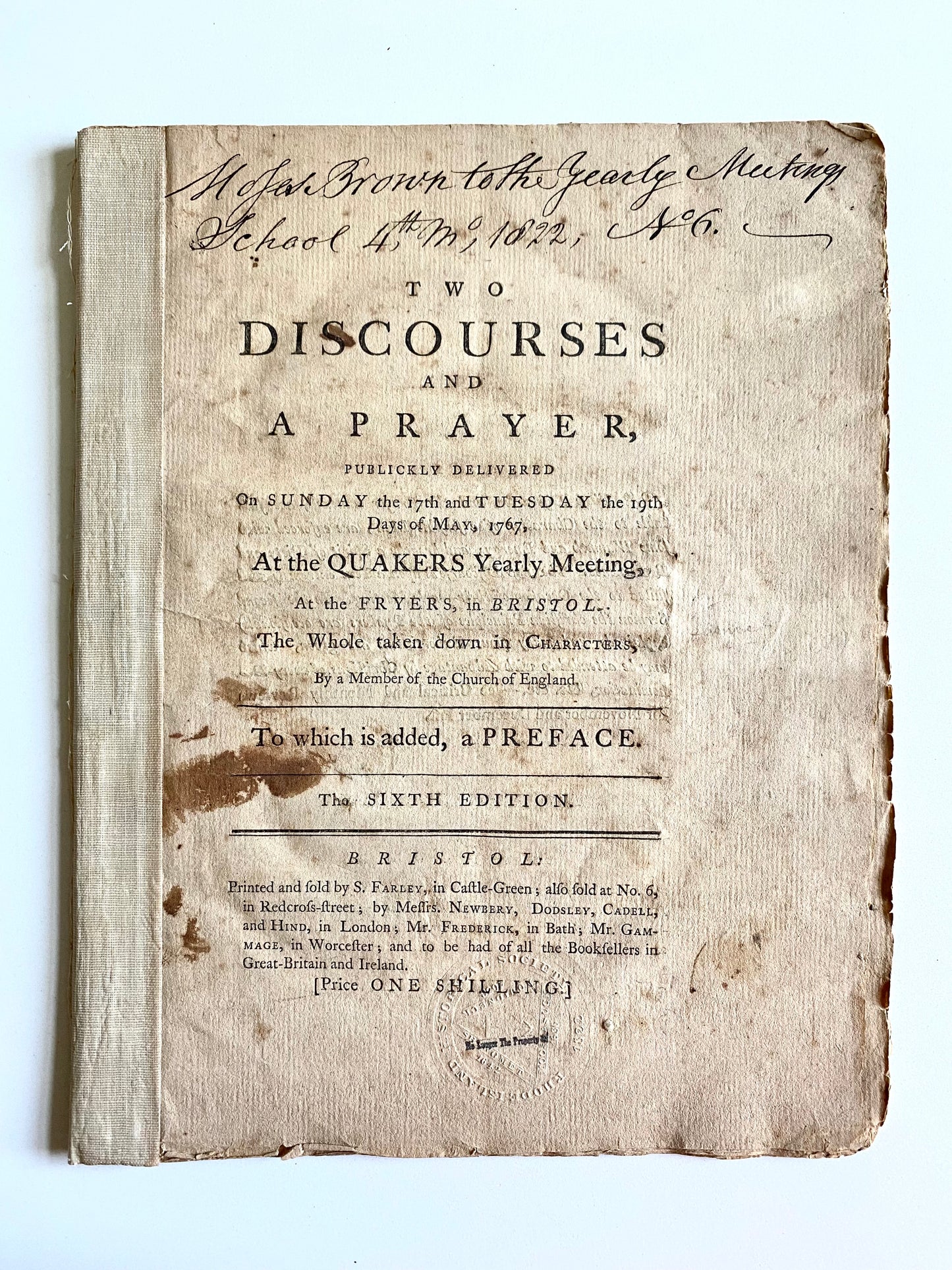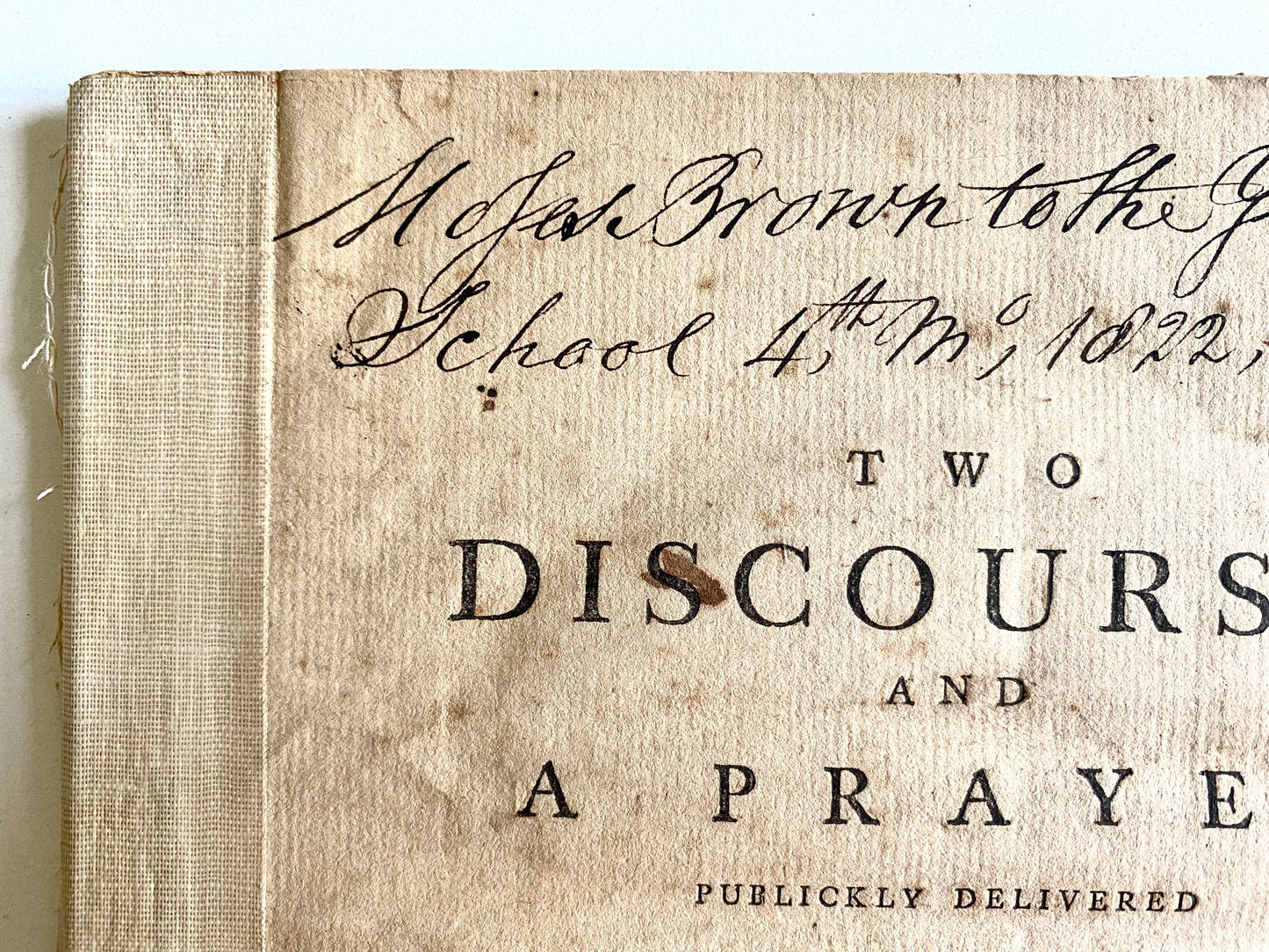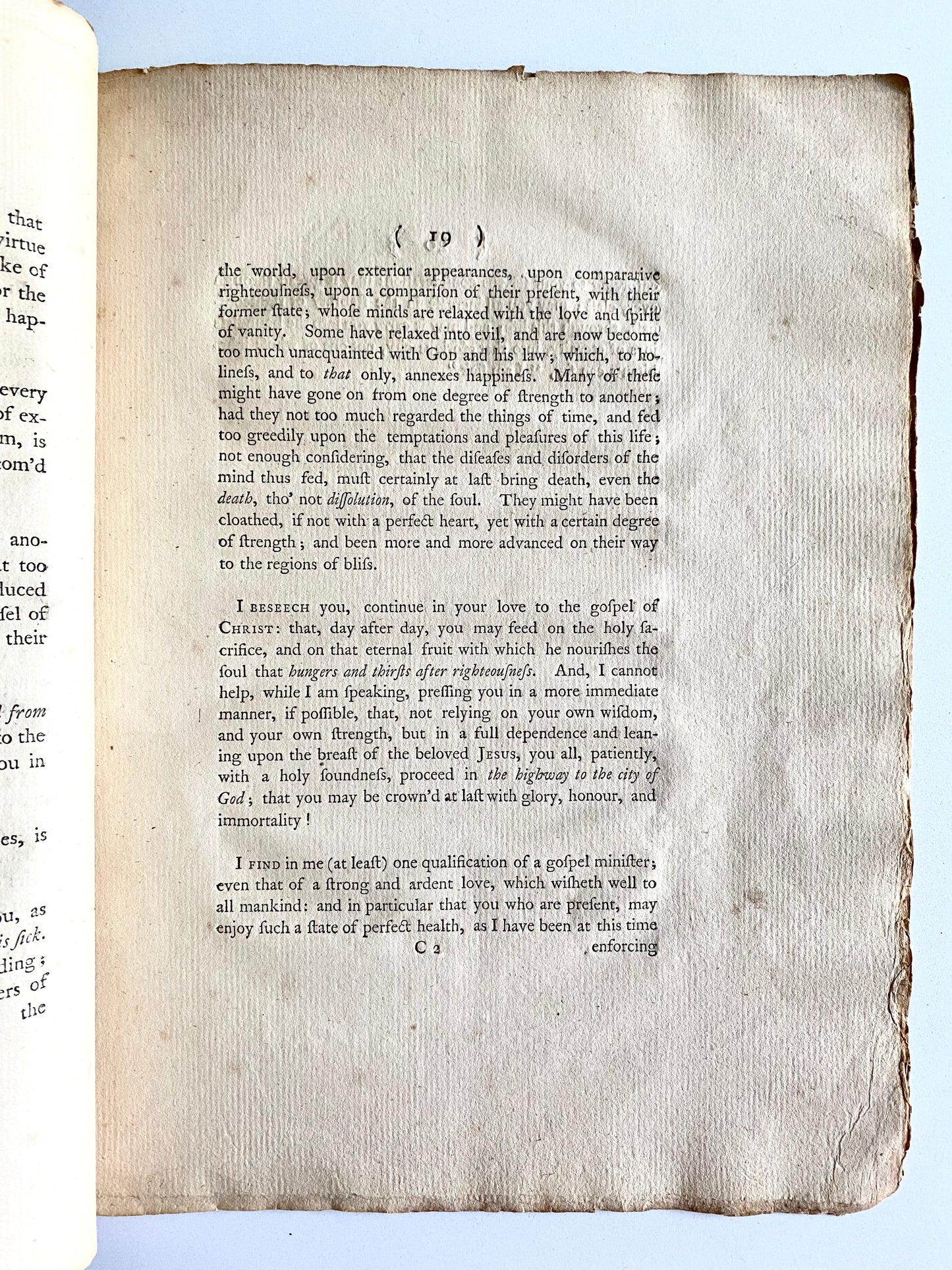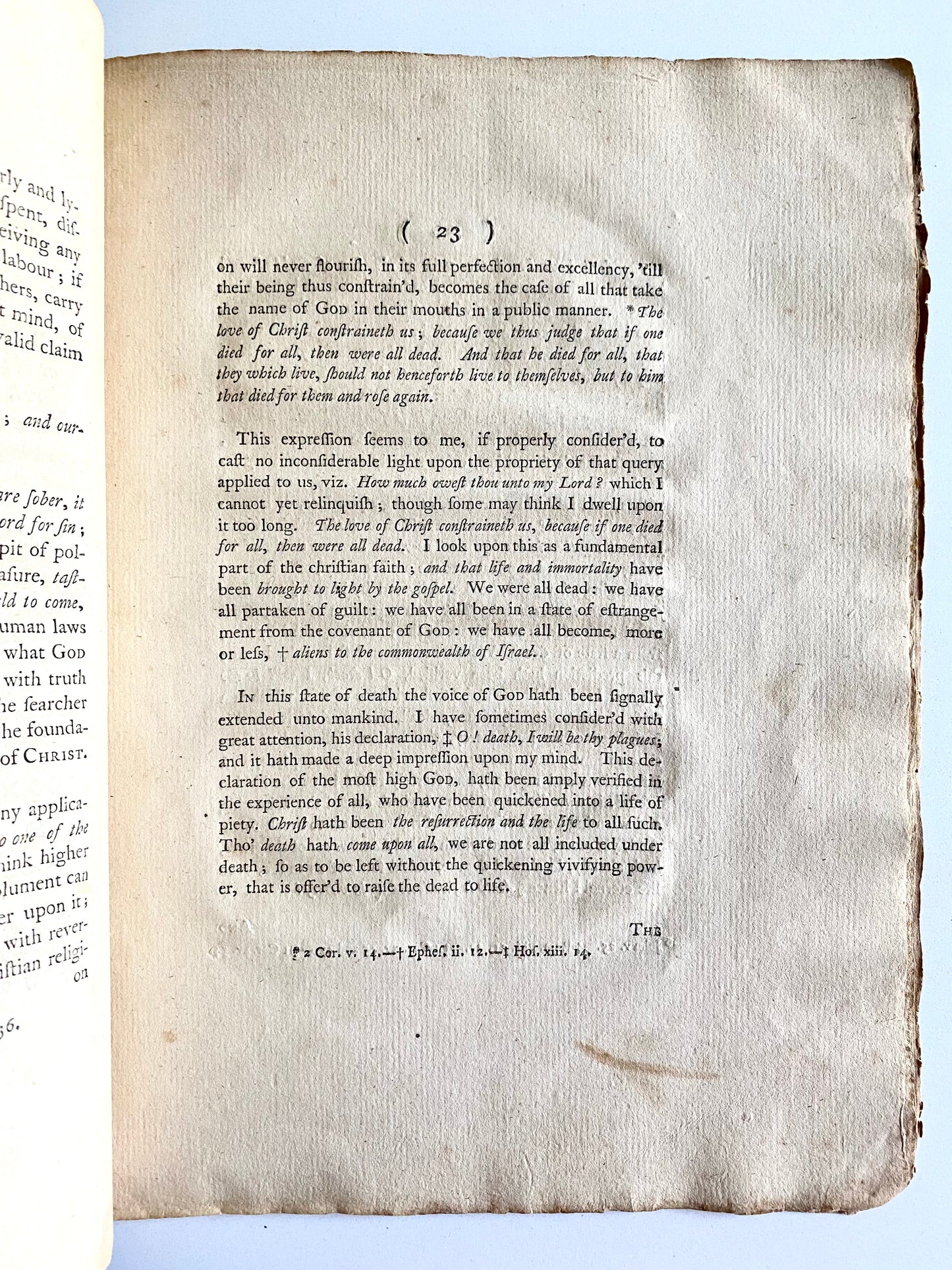Specs Fine Books
1767 SAMUEL FOTHERGILL. Two Discourses and a Prayer. Signed by Important Quaker Abolitionist!
1767 SAMUEL FOTHERGILL. Two Discourses and a Prayer. Signed by Important Quaker Abolitionist!
Couldn't load pickup availability
A wonderful piece of Quaker, Rhode Island, Americana, and Abolitionist history.
The work itself is a series of two important discourses delivery by Quaker, Samuel Forthergill. Gathered at the occasion were Christians of all persuasions. It was said that all had out paper and ink to take down notes, so rich were the discourses. The notes themselves here published were gathered by an Anglican divine. The editor himself commended the discourses to all as had prejudice against the Quakers as proof positive of the presence of Christ among them. Forthergill did not consent to publish his sermon, and was then persuaded by the clergyman. He consented on the condition that they were printed without the author's name appended.
Searching, evangelical work on the words, Art Thou in Health, My Brother?
Additionally, and adding to the value of the work substantially, this particular example was gifted by Moses Brown [1738-1836] to the Quaker Yearly Meeting School, which was later Moses Brown School.
Moses Brown was an important early American Abolitionist, Educator, and figure in the American Revolution. His family made its fortune in production, especially rum, and was the financial sponsor of the slave ship Sally. Moses himself was one of the financiers. Setting sale for Africa in 1764, the journey took much longer than planned and the slaves revolted. Small canons on deck were turned on the slaves and over 60% of them died by canon, pistol, or disease. It was a moral, human, and financial disaster. This was a turning point for Moses. He left his brother's business and became the most vocal abolitionist in Rhode Island. He was her John Newton. He freed his own slaves, lobbied the government for the abolition of slavery in 1783, making him one of the earliest political opponents of slavery in America. He also used his vast wealth to assist runaway slaves and was involved with a sort of proto-Underground Railroad.
He was finally successful in seeing legislation passed against slave trading. His own brother, John, was the first person prosecuted and convicted under the new law.
He served on the Rhode Island General Assembly from 1764-1794, was on the Committee to Oppose the Stamp Act in 1765, was Founder of the Rhode Island Bible Society, the Rhode Island Peace Society, and was active and/or formative in many other philanthropic and religious causes and institutions.
In 1772, led by his brother John, his family became active in agitating toward the American Revolution. John was the main protagonist in the Gaspee affair, in which a British ship responsible for monitoring ships was torched and burned. Their family also built The Providence which was constructed specifically to battle the British and had as its Admiral none other than John Paul Jones.
After his wife Anna died in 1773, he retired from business and became active as a leader among the Quakers and in social causes.
Simple land contracts signed by Brown have sold at auction for $4,000.00+. Excellent deal on this for an important piece of Americana.
Forthergill, Samuel. Two Discourses and a Prayer, Publickly Delivered on Sunday the 17th and Tuesday the 19th Days of May, 1767. At the Quakers Yearly Meeting, at the Fryers, in Bristol. The Whole Taken down in Character by a Member of the Church of England. Sixth Edition. Bristol. S. Farley. c.1780 imprint. 39pp.
Good condition, hinges / spine reinforced and now splitting again; sepia ink stain on cover. Handled. Complete and legible. Blind stamped from the Rhode Island Historical Society.
Share








